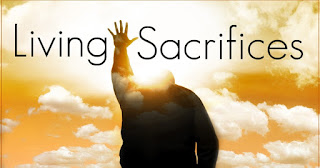Childlike
Read Mark 10:1-31.
I've often said I learned more about my relationship to Jesus by having children of my own than in any other way. At least, that's been my experience. The way they relate to me and the way I relate to them is, in some small way, a reflection of the relationship I have with my heavenly Father—good and bad. The selfishness that comes out in me, the ways in which I fail to live up to who I aspire to be, the times I simply am not who I should be—all of that becomes writ large in your life when you see some of your worst traits showing up in your children. (Sorry, kids!)
That's why, I believe, the key to this section of Mark's Gospel is found in Jesus' welcoming of the children, and especially in his decree: "Anyone who will not receive the kingdom of God like a little child will never enter it" (10:15).
Mark has put these three stories together for a reason. Maybe they happened sequentially, maybe not. But Mark (because of Peter) understands and wants us to understand Jesus' main point here: only children really "get" the kingdom of God. As we grow up, we lose the wonder, the joy, the ability to forgive and move on that children have.
So when he talks about divorce in this passage, I believe he's thinking of the children. Not necessarily the children of divorce; this is not a commentary on that issue. But the way children build relationships. My own kids were willing to be friends with just about anyone, and every relationship was important to them. (When we warned my 4-year-old son about strangers, he told us they weren't strangers—they were just friends he hadn't met yet!) When there were disagreements, they never lasted long. Kids, much more easily than adults, know how to forgive and move on, how to repair brokenness and not let it affect a person for the long haul. It's when we grow up that we learn to hold grudges, fail to forgive and more easily "write people off." More than a commentary on divorce per se, Jesus is using the question he was asked to cause us to examine our relationships in general. Approach your relationships with a child's heart—with forgiveness, grace and mercy.
The same thing when it comes to wealth. Children have nothing. Well, they "have," I suppose, what their parents have, but they really own and have nothing. That also means they do not have the burdens and the stress and the worries that come with piled-up wealth or even piled-up debt. They are free to enjoy all the good things life brings—but they are completely dependent. When we acquire things, money, debt and stress (i.e., when we become "independent"), it makes it harder for us to truly enjoy the good things of life. There is this compulsion that calls us to want more and more and more. Jesus said the worries and cares of this life will bog us down (cf. Mark 4:19) and keep us from receiving what he has to offer. We have closed hands—closed around the stuff we own. But children have open hands, dependent, ready to receive.
That's why the kingdom, Jesus says, belongs to children and to those who learn again how to be a child. That's why he tells Nicodemus that a believer must be "born again." Start over. Become a child again. Not childish, but childlike. To such a person, the kingdom is given.



Ahh, children. They sure do help me see the wonder again in the world and so many different ways to look at things. Great post!
ReplyDelete